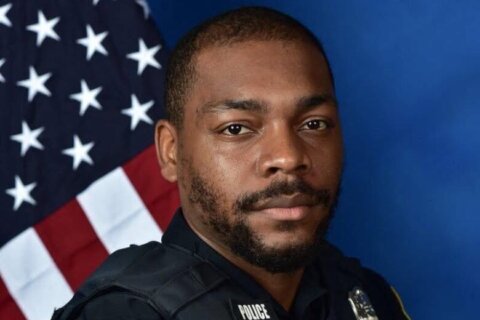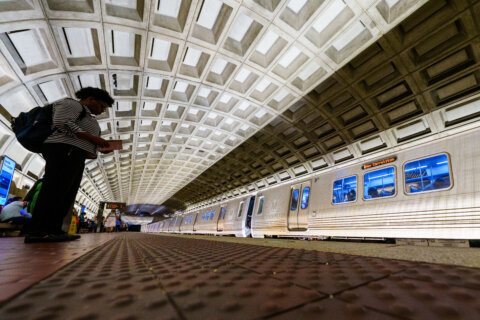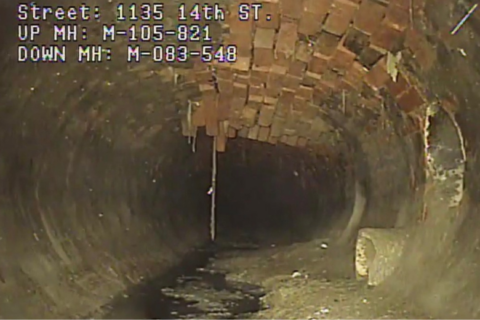Advisory Neighborhood Commissioners, councilmembers and representatives from the police department and mayor’s office held a virtual town hall on Saturday to start the discussion of re-imagining policing within the District.
The goal was to put some ideas forward that would create stronger bonds between officers and community members.
The “Re-imagining Police in the District of Columbia” discussion comes as much of the country faces questions around racism and the justice system.
“We’ve never seen a moment quite like this,” said Douglass Sloan, first Vice President of the District’s NAACP branch. “So we have to take the opportunity now to implement real, fundamental, concrete change.”
When it comes to specific goals within the District, Councilman Charles Allen said one of those needs is a civilian-led entity to deal with complaints involving police. This, he said, would create trust in the system. Allen noted WMATA’s police as an example of how more community oversight has been successfully implemented.
“The systems that get built have to be founded on credibility and trust,” he said, going on to reference how hard it can be for the department to flush out a “bad cop.”
“If you don’t trust the complaint system that’s been set up, if you don’t trust that the discipline will be meted out, if you don’t trust that the department can take action on change as needed … that’s part of the challenge we’re trying to meet.”
Robert Contee, an assistant chief with the District’s police force, said creating connection between police and the communities they serve is a crucial step to bringing about change.
“Those communities that are some of our most challenged areas, those voices sometimes, in my opinion, are not heard.”
“I just want to see something that’s focused, that’s fair, that’s balanced across the board,” Contee said, stressing the need for cops to come from the communities they serve through programs like the police cadet program.
Contee said encouraging officers to live in the District will require some programs to make it easier for police to own homes in the city. Allen noted that a number of D.C. police officers live 30 minutes outside of the city.
“I want [police officers] to stay here, raise their families here and retire here,” Allen said. “That helps to make sure you have a homegrown and stay-at-home force.”
Sloan said the District has a problem with retaining officers who are not from the District originally.
“We should try to expand the training of D.C. officers. If we have to create another section of the department, then so be it. Because right now, they are overworked,” Sloan said. “We shouldn’t be calling police for every single issue and it’s important that we assist our police department in dealing with that problem.”
Contee also said those who are involved in setting policy for the District ought to do a better job to hear from those who don’t attend council meetings or don’t have the resources to engage with representatives on platforms such as Facebook Live.
“There’s a large part of the community that don’t attend these meetings, and I think it’s important that we really understand what those needs are. And those communities, because of where they are, their voices are not heard,” Contee said.
Kevin Donahue, the Deputy Mayor for Public Safety and Justice, said part of creating the connection between the police and the community is a use of force board. He said work needs to be done to address which emergency calls are handled by police. Right now, he said, fewer than 50% of medical-related calls are handled by D.C. Fire and EMS due to ways certain calls are handled.
“In the area of policing, there is a similar opportunity for innovation that will not simply happen by having fewer cops, it will happen by figuring out what we need more of and what training do they really need,” he said. “To reform policing, we have to look at what policing is, and we really have to take on everything around it to be able to have a sustained change.”
Jayaraman, after the meeting, told WTOP, he was inspired by the communication that’s taken place among the groups involved in the town hall, not just on Saturday morning, but in the nearly two months since George Floyd was killed in Minneapolis and social justice protests took over many cities in the U.S.
He said the council is going to work with the District administration to deal with some of the greater “underlying issues” that cause police to feel overwhelmed. The group is going to specifically look to retrain police officers in de-escalation tactics and also work to create more economic opportunity in underserved parts of the District.
ANC chair Chander Jayaraman, who is running for a D.C. council at-large positing, helped organize the event. H said he’d like to see some of the stresses taken off the police, noting many calls that wind up being handled by police are not what they’ve been trained for.
“We take a lot of those things off of them that is not their core function and responsibility,” he said. “Those belong in other agencies that are well-funded. But unfortunately they’re only available during the time that’s convenient for the bureaucracy, which is 9 to 5. That’s not when things happen.”









